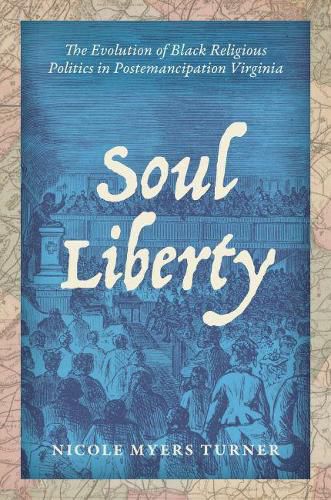Readings Newsletter
Become a Readings Member to make your shopping experience even easier.
Sign in or sign up for free!
You’re not far away from qualifying for FREE standard shipping within Australia
You’ve qualified for FREE standard shipping within Australia
The cart is loading…






That churches are one of the most important cornerstones of black political organization is a commonplace. In this history of African American Protestantism and American politics at the end of the Civil War, Nicole Myers Turner challenges the idea of always-already politically engaged black churches. Using local archives, church and convention minutes, and innovative Geographic Information Systems (GIS) mapping, Turner reveals how freedpeople in Virginia adapted strategies for pursuing the freedom of their souls to worship as they saw fit-and to participate in society completely in the evolving landscape of emancipation.
Freedpeople, for both evangelical and electoral reasons, were well aware of the significance of the physical territory they occupied, and they sought to organize the geographies that they could in favor of their religious and political agendas at the outset of Reconstruction. As emancipation included opportunities to purchase properties, establish black families, and reconfigure gender roles, the ministry became predominantly male, a development that affected not only discourses around family life but also the political project of crafting, defining, and teaching freedom. After freedmen obtained the right to vote, an array of black-controlled institutions increasingly became centers for political organizing on the basis of networks that mirrored those established earlier by church associations.
$9.00 standard shipping within Australia
FREE standard shipping within Australia for orders over $100.00
Express & International shipping calculated at checkout
That churches are one of the most important cornerstones of black political organization is a commonplace. In this history of African American Protestantism and American politics at the end of the Civil War, Nicole Myers Turner challenges the idea of always-already politically engaged black churches. Using local archives, church and convention minutes, and innovative Geographic Information Systems (GIS) mapping, Turner reveals how freedpeople in Virginia adapted strategies for pursuing the freedom of their souls to worship as they saw fit-and to participate in society completely in the evolving landscape of emancipation.
Freedpeople, for both evangelical and electoral reasons, were well aware of the significance of the physical territory they occupied, and they sought to organize the geographies that they could in favor of their religious and political agendas at the outset of Reconstruction. As emancipation included opportunities to purchase properties, establish black families, and reconfigure gender roles, the ministry became predominantly male, a development that affected not only discourses around family life but also the political project of crafting, defining, and teaching freedom. After freedmen obtained the right to vote, an array of black-controlled institutions increasingly became centers for political organizing on the basis of networks that mirrored those established earlier by church associations.